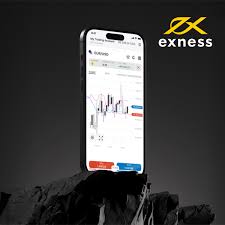
Understanding Exness Forex Signals: A Guide to Better Trading
In the ever-evolving world of trading, forex signals have become an integral tool for traders seeking to improve their strategies and make informed decisions. For those trading with the popular platform, Exness, understanding how forex signals work can significantly enhance profitability. In this article, we’ll break down the concept of forex signals, specifically in the context of Exness, and provide insights into how traders can effectively utilize them. Discover how to navigate the forex market with the help of expert signals and strategies.exness forex signals Exness Kyrgyzstan
What Are Forex Signals?
Forex signals are suggestions or alerts for buying or selling a currency pair at a specific time. These signals can be generated through automated algorithms or by experienced analysts. They are vital for traders who may lack the time to conduct extensive research or analysis on their own. By leveraging forex signals, traders can make more strategic decisions based on expert insights.
Types of Forex Signals
There are primarily two types of forex signals: manual and automated. Manual signals are based on the experience and knowledge of analysts who perform technical and fundamental analysis. On the other hand, automated signals rely on algorithms and trading robots that assess market conditions and provide signals accordingly.
Each type has its advantages. Manual signals often come with context and detailed explanations, making them educational for less experienced traders. Automated signals, however, provide quicker responses to market changes, which can be beneficial in highly volatile environments.
How Exness Forex Signals Work

Exness offers traders access to various tools and resources that can aid in the decision-making process. Forex signals provided on the Exness platform often come from their team of analysts or reputable third-party signal providers. These signals typically include:
- Entry price: The suggested price level to execute a trade.
- Stop-loss: A predetermined exit point to minimize losses.
- Take-profit: The target price where traders can secure their profits.
- Additional insights: Information regarding market conditions or economic indicators influencing the trade.
The Importance of Timing in Forex Signals
Timing is crucial in forex trading. The forex market operates 24 hours a day, and price fluctuations can occur rapidly. This means that forex signals are often time-sensitive, and acting quickly is essential for traders aiming to maximize their profits or minimize losses.
When using forex signals on Exness, traders should pay close attention to the timing of the signals. Delayed responses can lead to missed opportunities or unwanted losses. Therefore, incorporating smart trading practices, such as setting up alerts and notifications, is advisable to stay updated on signal activations.
Benefits of Using Forex Signals
There are numerous benefits to utilizing forex signals in your trading strategy. Here are some of the most notable advantages:
- Education: For novice traders, analyzing and following signals can provide valuable learning opportunities to deepen their understanding of market dynamics.
- Time-saving: Forex signals save traders the time and effort involved in conducting thorough market analysis.
- Objective decision-making: Signals provide an objective approach to trading, reducing the influence of emotions which can often lead to poor decision-making.
- Enhanced risk management: By setting clear entry and exit points, traders can better manage their risk and exposure in the market.
Challenges and Considerations

While forex signals offer numerous advantages, it’s essential to remain cautious and informed. Here are some challenges and considerations to keep in mind:
- Reliability: Not all signal providers are equally trustworthy. It’s crucial to research and evaluate the performance of signal providers before relying on their insights.
- Over-reliance: Traders must be careful not to become overly dependent on forex signals. Developing personal analytical skills is essential to becoming a well-rounded trader.
- Market unpredictability: Forex markets can be highly volatile, and relying solely on signals without considering market conditions can lead to unexpected results.
Choosing the Right Forex Signal Provider
When selecting a forex signal provider, especially on platforms like Exness, several factors should guide your decision:
- Track Record: Look for providers with a solid track record and consistent performance over time.
- Transparency: A reputable provider should clearly explain their strategies and methodologies.
- User Reviews: Reading feedback and reviews from other traders can give insight into the effectiveness of the signals.
- Support: Consider whether the provider offers additional support, such as customer service or educational resources.
Integrating Forex Signals into Your Trading Strategy
To maximize the benefits of forex signals, traders should integrate them thoughtfully into their overall trading strategy. Here are some tips for doing so:
- Combine with Fundamental Analysis: Use forex signals alongside fundamental analysis to gain a more comprehensive understanding of market conditions.
- Set Your Risk Tolerance: Before acting on any signal, determine your risk tolerance and adjust position sizes and stop-loss levels accordingly.
- Keep a Trading Journal: Documenting trades based on signals can help traders evaluate performance and refine strategies over time.
Conclusion
In conclusion, understanding and effectively utilizing Exness forex signals can empower traders to make more informed and strategic decisions. While signals are not a guarantee of success, they can serve as a valuable resource in an overall trading approach. By remaining educated, cautious, and adaptable, traders can harness the potential of forex signals to enhance their trading experience and achieve their financial goals. As always, prudent risk management and continuous learning should remain at the forefront of any trading strategy.
